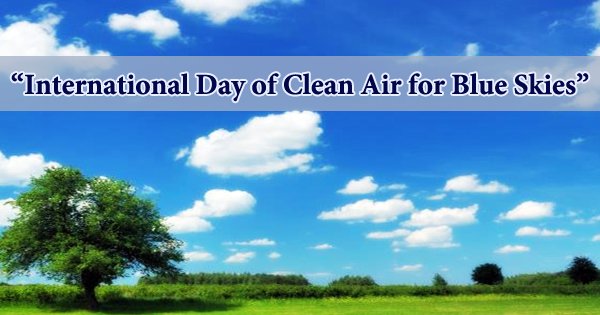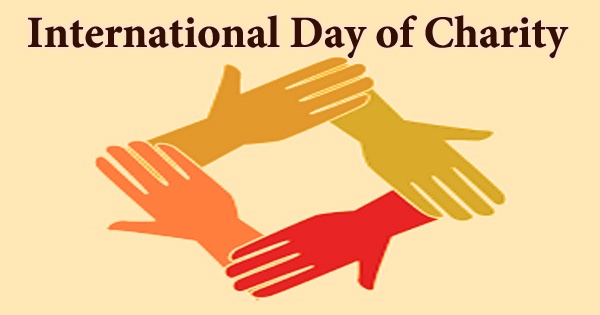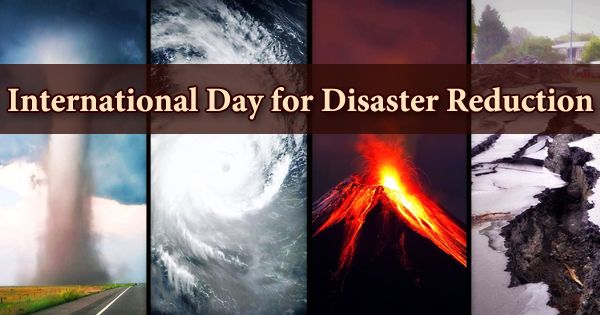Air pollution is the single biggest environmental threat to human health and one of the leading preventable causes of death and disease worldwide, with an estimated 6.5 million premature deaths due to indoor and outdoor air pollution in 2016. Women, children, and the elderly are disproportionately affected by air pollution in developing nations, particularly in low-income populations, since they are frequently exposed to high levels of ambient air pollution and indoor air pollution from cooking and heating with wood fuel and kerosene. On September 7th, the United Nations General Assembly declared the “International Day of Clean Air for Blue Skies” to promote international cooperation in improving air quality and decreasing pollution. The designation was established by Assembly resolution 74/212, which was passed during the 52nd plenary meeting of that session on December 19, 2019. The resolution was passed without a vote, showing that all nations understood the importance of the topic, were unified on the matter, and there were no clear differences. “The need to strengthen international cooperation at the global, regional, and subregional levels in various areas related to improving air quality, including the collection and utilization of data, joint research and development, and the sharing of best practices,” the General Assembly stated in that resolution. It places a particular emphasis on the disproportionate impact of poor air quality on women, children, and the elderly. The goal of the Day is to emphasize the importance of clean air for everyone while keeping the discourse wide enough to include other pressing concerns such as climate change, human and planetary health, and the Sustainable Development Goals. It acts as a rallying cry for people to join together and assert their right to clean air. Air pollution is a worldwide issue with far-reaching consequences due to its long-distance travel. Without immediate action, the number of premature deaths caused by ambient air pollution is expected to rise by more than half by 2050. Air pollution has a significant societal cost because of its bad effects on the economy, job productivity, healthcare expenditures, and tourism, among other things. As a result, the economic advantages of investing in air pollution management cannot be overstated, and it is important to recognize that there is an economic justification for acting and that cost-effective solutions to air pollution exist. Poor air quality is an issue for all nations in the context of sustainable development, particularly in cities and metropolitan regions in developing countries, where air pollution levels exceed the World Health Organization’s (WHO) air quality recommendations. Some air pollutants, such as black carbon, methane, and ground-level ozone, are also short-lived climatic pollutants that cause a large part of air pollution-related fatalities, as well as affects on crops and hence food security, thus reducing them has climate advantages.
The goal of the International Day of Clean Air for Blue Skies is to promote awareness about the significance of clean air for health, productivity, the economy, and the environment, as well as to show how air quality is linked to other environmental and developmental issues like climate change; by sharing actionable knowledge, best practices, innovations, and success stories; and by bringing together various actors for coordinated national, regional, and worldwide approaches to successful air quality management. By 2030, UN Member States recognize the need to reduce the number of deaths and illnesses caused by hazardous chemicals, air, water, and soil pollution and contamination, as well as the negative per capita environmental impact of cities, including by focusing on air quality and municipal and other waste management. People’s health and daily life depend on clean air, but air pollution is the single biggest environmental danger to human health and one of the leading preventable causes of death and disease worldwide. Women, children, and the elderly are disproportionately affected by air pollution, which also has a detrimental influence on ecosystems. The inaugural International Day was observed on September 7, 2020, with events taking place all around the world. Due to the COVID-19 epidemic, however, the majority of the memorial ceremonies took place online. The United Nations Environment Programme (UNEP) and the Climate and Clean Air Coalition to Reduce Short-Lived Climate Pollutants (CCAC) were the International Day’s lead coordinating partners, with additional funding from Germany’s Federal Ministry of the Environment, Nature Conservation, and Nuclear Safety (BMU). The World Health Organization collaborated with the non-profit BreatheLife to plan certain events for the day at some of the commemorations. Today, the international community recognizes that better air quality may help mitigate climate change and that climate change mitigation measures can help improve air quality. The General Assembly decided to designate September 7 as the International Day of Clean Air for Blue Skies, inspired by the growing international interest in clean air and emphasizing the need to make additional efforts to improve air quality, including reducing air pollution, to protect human health.
















